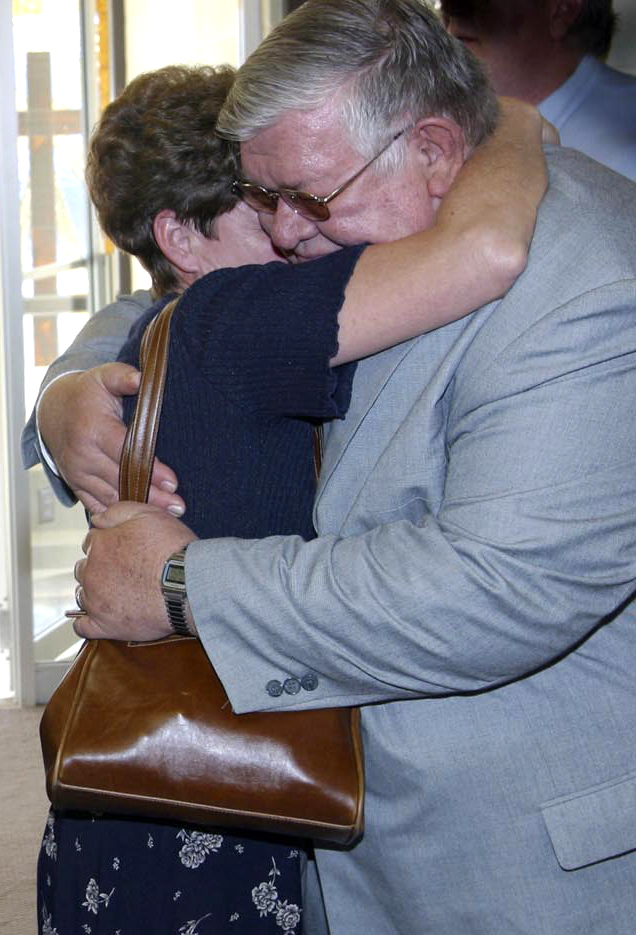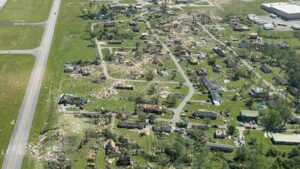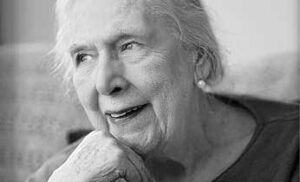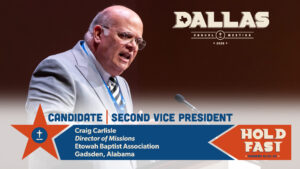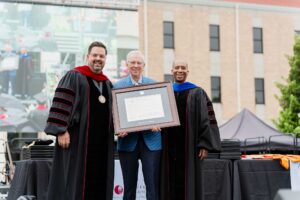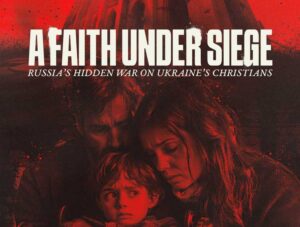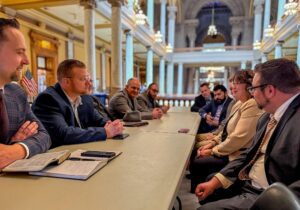
LAMAR, Colo. (BP)–Southern Baptist aid worker David McDonnall died a martyr’s death in Iraq, but he was drawn there by his passion to share the good news of God’s love, speakers said during a March 20 memorial service at First Baptist Church in Lamar, Colo.
McDonnall and four other humanitarian workers, including his wife, Carrie, were attacked with automatic rifles and rocket-propelled grenades fired by unknown assailants March 15 in Mosul, Iraq. McDonnall died the next day as military medical workers rushed him to a hospital in Baghdad.
Three other workers — Larry Elliott, his wife, Jean, and Karen Watson — were killed in the attack. Carrie McDonnall was severely wounded by bullets and shrapnel in the attack but is reported in stable condition in a hospital in Dallas.
Several hundred friends, family members and colleagues attended McDonnall’s funeral, held at the American Baptist church where his family has been active for almost two decades. In recent years David and Carrie had become members of Travis Avenue Baptist Church, a Southern Baptist congregation in Fort Worth, Texas.
One of those attending — the mother of a young worker still serving with her husband in the region — traveled from Alabama to attend the funeral.
She said her daughter and son-in-law will not leave.
“They know they are where God has placed them and they have a peace about it. My husband and I have a peace about it as well,” she said. “We just know they’re where the Lord wants them. They’re safer there, even amid the chaos, because they are within His perfect will.”
McDonnall’s family took great care to explain his life: Bulletin boards outside the sanctuary presented photos and newsletters he had sent to describe his life and work in Iraq. The service opened with projected pictures from Iraq and his earlier service elsewhere in the region. In a video shown at the start of the service, McDonnall talked about why he and his wife were going to such a dangerous place:
“We both strongly feel that God has called us to go to these people, knowing that the love of God and the power of Christ can change any heart, can break through any bond — and can turn people from violence into carrying the Word of God and piercing the hearts of people, not with bullets, but with the Word of God.”
Dennis Bradley, pastor of First Baptist Church, sometimes spoke through tears as he compared McDonnall’s death to that of first-century martyr Stephen, whose stoning is described in Acts 7.
“You and I know that David died as a martyr,” he said.
Quoting Psalm 116:15 — “Precious in the sight of the Lord is the death of his saints.” — Bradley said: “We have trouble understanding that, because death in our sight is not precious. It is difficult. It is hard. My prayer for us today is for the Holy Spirit of God to help us see things from His perspective.”
AMBASSADOR OF LOVE
“It was David’s desire to be his Lord’s ambassador, to take the love of Jesus to other people and that’s what he was doing in Mosul last Monday,” said Clyde Meador, executive vice president of the International Mission Board. “He was taking the love of Jesus and demonstrating the love of Jesus to people who otherwise might never know.”
Meador also read part of a message from one of David’s colleagues on the field: “We discussed the possible cost for sharing our Lord’s Gospel. David knew the risks, and he was ready and willing to accept them. It is the blood of the martyrs that grows the Kingdom of God.”
Another overseas colleague brought a smile to faces as he described David’s powerful laugh and comical exploits in the Middle East and northern Africa.
But he turned serious as he declared: “David didn’t go to Iraq in response to pressure. David went to Iraq in response to a passion in his heart to see people hear the Gospel and know about Jesus.
“He did not go to Iraq to convert anyone or convince anyone. That’s the distinct thing about Christian missions. We can’t convince or convert anybody. That’s God’s business. That’s the work of the Holy Spirit.”
The coworker continued: “He went to Iraq to live among a people who needed to know Jesus’ story. He did not go to Iraq to die. The dying had been done years before, when he gave his life to Jesus Christ and he died to self. He went to Iraq to live.
“I’m sure there are some that have thought, ‘What’s wrong with those guys? Why would they do that? Why would they go?’ He didn’t have a death wish! He went with a life wish, a desire and a hope to live out the Gospel among Iraqi people, so that they might know eternal life through Jesus.”
Pastor Dennis Bradley said David’s service in Iraq and his death should not be seen as unusual.
“I don’t believe what David did was out of the ordinary for people that are really possessed of the love of God,” he told the congregation. “I just don’t think there are a lot of people willing to do it, either over there or here.”
–30–
Updated information will be posted at https://imb.org as it is received.
(BP) photo posted in the BP Photo Library at https://www.bpnews.net. Photo title: SHARED SORROW.
